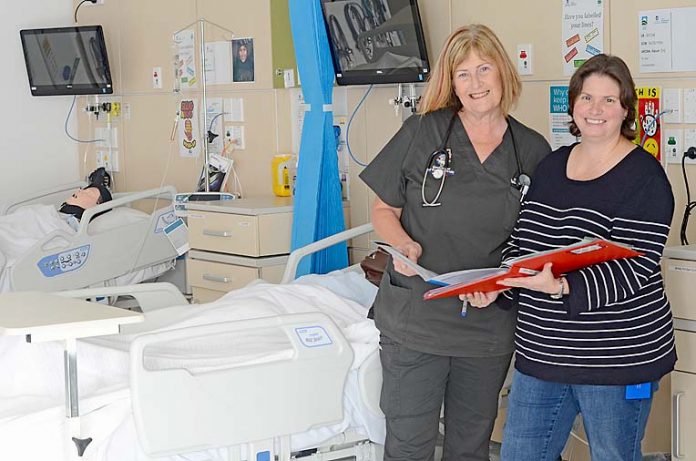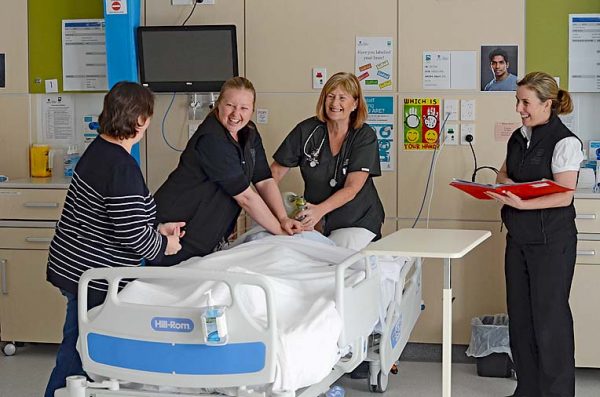

“IT CAN be a really tough place to work and it is an emotional place,” Leanne Heaver told The Border Watch on the eve of her retirement after 10 years as a nurse at Mount Gambier Hospital’s emergency department.
“We laugh with our patients and families, but we cry with them too and being a member of the community means our patients are often people we know.”
Ms Heaver was among the first group of registered nurses to graduate from UniSA’s Mount Gambier campus and has worked at the frontline in accident and emergency for a decade.
“During the first year the Bachelor of Nursing course was offered in Mount Gambier, we were taught in a classroom setting and went to Tenison Woods College to do our bio-sciences,” she said.
“The learning environment has changed completely since then, the facilities here now are state-of-the-art and interactive – we practised giving injections using oranges.
“I was already an enrolled nurse at the time, but if UniSA had never offered the course here none of us would have gone on to do our RN because we were all here with families and businesses.
“Not everyone wants to go – or can go – to the city to complete their study.”
UniSA nursing lecturer Dr Julie Reis said the collaboration between the hospital and nursing school, which began during that first year, had continued over the last decade.
“We get together with the directors of nursing at the hospital and have a yearly forum,” she said.
“We collaborate and match the way we are teaching with workforce needs and it is very positive for the region to have a state-of-the-art facility and that interface between the hospital and academia.
“It is such a pleasure when ex-students come back as colleagues and start teaching the next generation – it is so gratifying.”
Ms Heaver’s involvement in a simulated patients program saw her return to the nursing school a few years ago.
“We had real people act as patients in beds and I helped to facilitate that,” she explained.
“I organised people to volunteer as patients and I would prep them and tell them what to say to the nurses.
“It was a really beneficial program, but funding ran out unfortunately.”
Of her long service in the often turbulent emergency department, Ms Heaver said there was nothing she would rather do.
“A lot of the time it is positive, but there is also criticism, which can be a difficult pill to swallow when you have given it your all,” she said.
“I would not want to do anything else though – I love it.”
Colleagues Mary Harvey and Sally Neumann commended Ms Heaver on her long stint in the emergency department.
“Leanne has been a preceptor for students who do clinical placements in the department and she is very good at it,” Ms Neumann said.
“She guides and supports them during their placements, which is really important given the ED can be overwhelming.”
Ms Heaver helped Ms Harvey run an advanced life support program.
“For most of the patients who come through ED, it is the worst day of their life and you need to provide a buffer between the clinical and the emotional,” Ms Harvey said.
“What people really notice is the stuff you cannot measure and you cannot teach – they remember how a nurse made them feel.”
Ms Heaver recalled one particular occasion when that statement rang true.
“It’s a beautiful story and at the time it made me cry,” she said.
“I had a woman approach me in the supermarket one day and she said ‘you work at the hospital in emergency don’t you?’
“I had my guard up and thought ‘here we go’, but she said ‘you made my dad’s last hours really peaceful – he passed away later that night, but he could not stop talking about you’.
“That was really special – that’s what it is all about.”







